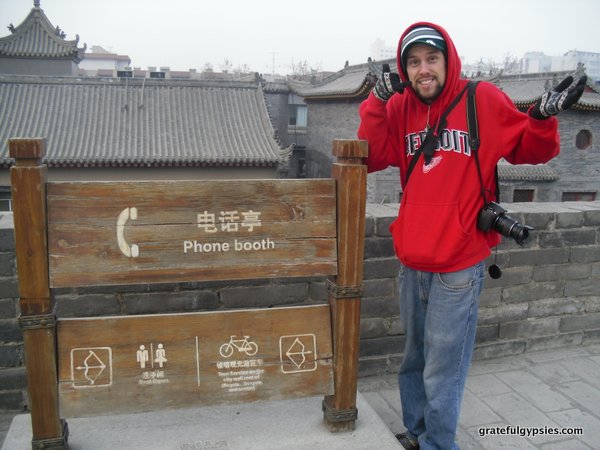How to Make a Phone Call in Chinese Posted by sasha on Aug 18, 2016 in Uncategorized
A great way to practice your Chinese skills is to make phone calls. This utilizes both your listening and speaking skills, and it’s good for improving your fluency. After all, if you can smoothly make a phone call – even one that’s just a minute long – you’ve come a long way in your quest to learn Chinese. This post will set you well on your way by teaching some useful words and expressions for making a phone call in Chinese.
Mandarin Dial Pad
In order to make a phone call, you’ll first need to understand the numbers on the dial pad in Chinese. Here’s a bit of review of the numbers 0-9. See if you can notice which one is different from what you’ve probably learned:
-
0 零 – líng
-
1 幺 – yāo
-
2 二 – èr
-
3 三 – sān
-
4 四 – sì
-
5 五 – wǔ
-
6 六 – liù
-
7 七 – qī
-
8 八 – bā
-
9 九 – jiǔ
When reading out numbers – telephone numbers, room numbers, license plate numbers – you don’t use the usual Chinese word for “one” (一 – yī); rather, you use the word 幺 (yāo). One idea as to why this is done is to help more clearly distinguish the number one from seven, as yī and qī sound a bit similar and could easily be confused. Try to practice reading your phone number out in Chinese to get started. Here’s how you ask/answer about a phone number:
What’s your phone number?
你的电话号码是多少? – nǐ de diàn huà hào mǎ shì duō shǎo
My phone number is…
我的电话号码是… – wǒ de diàn huà hào mǎ shì…
Now let’s take a closer look at some of the phone-related vocabulary that you’ll need to be able to make phone calls in Chinese.
Phone Vocabulary
Now it’s time to build up your phone-making vocabulary a bit, starting with how to answer the phone. While most English speakers pick up the phone and say “Hello,” Chinese don’t usually greet people with a 你好 when answering the phone. The most common greeting on the phone is actually 喂 (wéi). You can’t really translate this character; it’s just a telephone greeting. You’ll never hear people say this when greeting others face-to-face. Oftentimes, people will answer the phone by saying “喂… 你好.” Here’s some more useful vocabulary for making a phone call:
-
phone (电话 – diàn huà)
-
mobile phone (手机 – shǒu jī)
-
phone number (电话号码 – diàn huà hào mǎ)
-
make a phone call (打电话 – dǎ diàn huà)
-
answer the phone (接电话 – jiē diàn huà)
-
Hello (喂 – wéi)
-
Is … there? – (…在吗? – … zài ma)
-
I’m looking for… (我找…- wǒ zhǎo)
-
Who’s this? (这是谁? – zhè shì shuí)
-
wait a moment (稍等一下 – shāo děng yī xià)
-
please leave a message (请留言 – qǐng liú yán)
-
call back (回电话 – huí diàn huà)
-
call the wrong number (打错了 – dǎ cuò le)
Sample Conversation
Here’s a short sample phone call for you to review, including some of the vocabulary learned above. Do your best to go through the conversation in Chinese and understand it before opening the English translation:
喂, 你好.
wéi, nǐ hǎo
你好,小王在吗?
nǐ hǎo, xiǎo wáng zài ma
这是谁?
zhè shì shuí
这是田乐.
zhè shì tián lè
请稍等一下,我看他在不在家.
qǐng shāo děng yī xià, wǒ kàn tā zài bù zài jiā
…
他不在. 你要留言吗?
tā bù zài. nǐ yào liú yán ma
不用了. 他什么时候回家?
bù yòng le. tā shén me shí hòu huí jiā
他应该六点后回来.
tā yīng gāi liù diǎn hòu huí lái
好的,六点半我回电话吧. 谢谢.
hǎo de, liù diǎn bàn wǒ huí diàn huà ba. xiè xiè
不谢,再见.
bù xiè, zài jiàn
再见.
zài jiàn
Open Me
Hello, is Xiao Wang there?
Who’s this?
This is Tian Le.
Please wait a moment. Let me see if he’s home or not.
…
He’s not here. Do you want to leave a message?
No need. What time will he be home?
He should be home after 6.
Ok then I’ll call back at 6:30. Thanks.
You’re welcome. Goodbye.
Goodbye.
Video Lesson
You can see a lot of this phone vocabulary in action in this video lesson from CCTV in their “Growing Up Chinese” series. Watch the video and see if you can follow the conversation!
Making phone calls is great and all, but these days fewer and fewer people in China are actually making calls. Why’s that? Thanks to smart phones and social media apps, traditional phone calls are becoming a thing of the past. We’ll take a look at the biggest app in China – WeChat – in the next post.

Build vocabulary, practice pronunciation, and more with Transparent Language Online. Available anytime, anywhere, on any device.
About the Author: sasha
Sasha is an English teacher, writer, photographer, and videographer from the great state of Michigan. Upon graduating from Michigan State University, he moved to China and spent 5+ years living, working, studying, and traveling there. He also studied Indonesian Language & Culture in Bali for a year. He and his wife run the travel blog Grateful Gypsies, and they're currently trying the digital nomad lifestyle across Latin America.





Leave a comment: